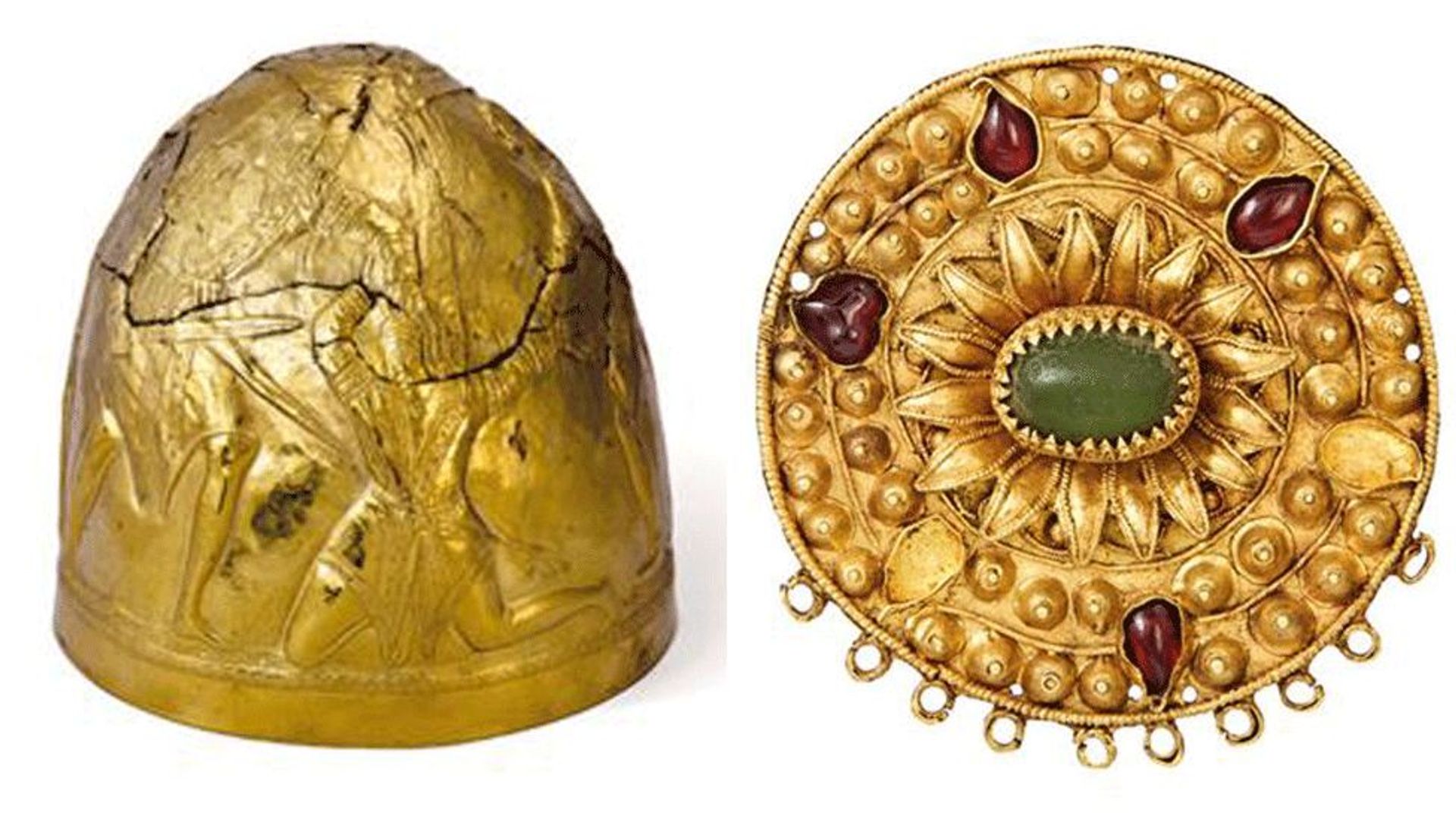Bitterly contested trove of Crimean gold artefacts must return to Ukraine, not Russia, Dutch court rules
Ancient artefacts were on loan to Amsterdam museum when Crimea was annexed in 2014
Sophia Kishkovsky
27 October 2021 ART NEWS PAPER
The collection included a gold Scythian ceremonial helmet (left) dating back to the 4th Century BC. Courtesy of the Allard Pierson Museum
The collection included a gold Scythian ceremonial helmet (left) dating back to the 4th Century BC. Courtesy of the Allard Pierson Museum
The collection included a gold Scythian ceremonial helmet (left) dating back to the 4th Century BC.
Courtesy of the Allard Pierson Museum
A Dutch appeals court has ruled that Ukraine has legal control over a contested collection of Crimean gold artefacts that was on loan to an Amsterdam museum when the Black Sea peninsula was annexed by Russia in 2014. The decision on Tuesday means the treasures will not return to the four Crimean museums which loaned them, all of which are now under Russian control.
The ancient trove, known as the Scythian gold, is a focal point of bitter wrangling between Russian and Ukraine and has been stored by the Allard Pierson Museum in Amsterdam since the exhibition The Crimea: Gold and Secrets of the Black Sea, which opened shortly before the annexation in March 2014. Nearly 300 gold items were shown, including a 4th-century-BC solid gold helmet that weighs over 1kg.
Judge Pauline Hofmeijer-Rutten who presided in the appeals court case ruled that the museum pieces belong to the State Museum Fund of Ukraine. This was based on a 1995 Law on Museums and Museum Affairs passed to safeguard heritage after the Ukraine declared independence from the Soviet Union in 1991.
“The public interests at stake are of great weight and this case is closely connected to the Ukrainian State,” reads a transcript posted on the court’s website. “Though the regulations encroach on private legal relationships, they do so for the sake of cultural interests that outweigh the interests of the Crimean museums.”
